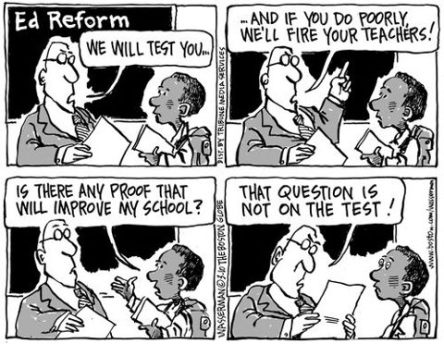
I was born in 1972, shortly after the Civil Rights Movement ended. While schools, businesses, and neighborhoods had been desegregated for some years now, there remained residual resistance toward “justice and liberty for all”. I didn’t much understand this back in the late 70s and early 80s, but something has now stimulated these latent memories.
I don’t remember too much about my toddler years. I recall my father’s job moved us around somewhat frequently. Well, more so for my brother’s than for me.
My parents left Atlanta shortly after I was born. My mother maintains that I was the best thing that came out of her experience there! Well, I absolutely agree with that, of course! From there, we moved to Maryland. I can recall only a few things from my life there. One experience in particular was the time my mother cooked LIVE crabs for a family get together! “Oh no!”, I protested. “I don’t want no “craps”!” I can remember how terrified I was by the sight of the crabs trying to escape the pot!! Ugh! I’m still a bit disturbed at the simple thought.
I was four years old when we moved to Minnesota. As I entered my formative years, my memories became more imprinted. I remember our home vividly. A three bedroom, two bathroom home. My brothers had to share a room while I had a room to myself. The front door led directly to the family room, with steps up to the kitchen, dining area, and living room. Here is where I have clear memories of the friends I made on my street, however, memories of my schooling experiences are few. In my quiet time, I often try to think back to see if I can draw out any memories. I’m never successful and I often stop to ask myself why this is the case.
While many of my friends and family have clear memories of their primary school years, mine are so very murky. I don’t recall my teacher’s names or those of my classmates. I remember I was very athletic and I did enjoy school, but what I remember most is that there was no one like me. I can see myself seated in the center of the room, surrounded by my white peers, whom I believe were as oblivious to the race issues around us as I was. Of course, I credit that to my parents who taught me to be kind and respectful to everyone, but to be aware of how others perceived me as well. What in the world does that even mean to a second or third grader who just wants to go to school to learn, then come home to go outside and play?! I hadn’t a clue.
After our six year stint in Minnesota, my father’s job moved us to Cleveland, Ohio where I still reside. It wasn’t until we moved here to Cleveland that I really realized there was no one like me in our old neighborhood or schools. As I reflected, I realized I was literally the only black child in my elementary school! My older brother was the only one in his junior high (until another young man came right before we moved) and our oldest brother was the only one from our neighborhood to attend the high school. He remembers some other black students being bussed in from a neighboring city, but he was the only one from our community. We all have at least one recollection of being called the “N” word during our time there and I later heard stories of a neighbor who thought it clever to dress up as a member of the Ku Klux Klan and leave a burnt cross in front of our home for Halloween. I suppose it’s safe to assume that some were not pleased to have us there and still did not believe in equality for all.
My parents did well shielding me as much as possible from the degradation they endured during their lifetime and, parenthetically, still existed after the Civil Rights Movement. However, I’ve now been exposed to a very diverse school here in Cleveland and I’m not quite sure how to respond. I want to make friends, but I find out quickly that I’m not “black” enough for them. “Why do you talk ‘white’?”, they’d ask. They’d taunt me with comments like, “You’re an Oreo!” and “You’re a white girl!” Well, what is this? Why are these kids being so mean to me! I’m just being me! I had no idea how to handle this at all!
 I couldn’t help but think of my scholars in that moment. Remembering how ostracized and alone I felt going through elementary school, I wondered… In a school that is just about 80% minority (60% Hispanic, 10% black, and 9% multiracial), are my students impacted by the fact that, other than me, there is no one like them? I should be clear that, yes, we do have paraprofessionals that speak Spanish and we have other staff that are minorities, but working in the classroom, right on the front line, responsible for making certain all standards are mastered…there is no one like them. I wonder if they feel understood? I wonder if they feel valued? I wonder if this impacts how they receive their education?
I couldn’t help but think of my scholars in that moment. Remembering how ostracized and alone I felt going through elementary school, I wondered… In a school that is just about 80% minority (60% Hispanic, 10% black, and 9% multiracial), are my students impacted by the fact that, other than me, there is no one like them? I should be clear that, yes, we do have paraprofessionals that speak Spanish and we have other staff that are minorities, but working in the classroom, right on the front line, responsible for making certain all standards are mastered…there is no one like them. I wonder if they feel understood? I wonder if they feel valued? I wonder if this impacts how they receive their education?
This is not the first time I’ve had these queries. In fact, I have them quite often when I walk into my classroom where 18 of my 19 students are minority and 13 of those are Hispanic. Now, I took Spanish in high school and passed, but I am by no means fluent in the language. But, oh, how I wish I were. Can you imagine the connections I’d be able to make with my scholars? Even though I know a little bit of Spanish, it’s certainly not enough to have a great impact on my instruction.
Not only am I unable to speak the language, I cannot relate to what it’s like to be living as a migrant, I’ve never been enticed to be in a gang, I wasn’t born into poverty, and I never wondered where my next meal was coming from. At first glance, I know they look at me and think, “She’s not like us. She won’t understand.” Little do they know, I recognize the feeling more than they, or anyone knows.
It is for these reasons that I’ve made it my business to try to protect my scholars from having the same experiences I’d had. I’ve made it a priority to fill their primary school experiences with positive memories that they will enjoy recalling as opposed to the converse of which I can attest to. So, I compensate for my lack of cultural knowledge and understanding in other areas so that my scholars do not have the perception that there is no one like them.
As with all scholars that enter my room, I take the time to get to know each one of them for who they are. I want to know their favorite subjects, the activities they like, their favorite foods, what makes them happy, and what makes them upset. I get to know them so well that I can generally tell when something is wrong, even when they try to hide it. Likewise, I share my interests, my likes and dislikes. I include them in parts of my life like my children’s birthday celebrations, when a family member is sick, or like the time I was in a car accident. I care about them all immensely and am very protective of their feelings because I get it. I’ve been (and still am) the only one.
As a result, my scholars open up to me about their family living here locally and their family in Mexico. I learn about the different foods from their culture, music, and what school is like for them in Mexico. They love to tell me stories and they do not withhold anything! We have great conversations about our different cultures and I am always genuinely intrigued to learn more. My scholars sense that and I know they appreciate that!
My scholars are more than just a number that identifies them. They have young, immature, yet creative and innovative minds that are thirsting for knowledge! Some are more thirsty than others, but I acknowledge that. I share the difficulties I had in school when I was a youngster, mostly in reading. They look at me with big, bright eyes in wonder. “But, you’re a teacher! You’re smart.” , they say. I explain that it didn’t come easily. You see, what came easily for others, has taken twice as much effort for me. I explained that when there are barriers that seem to get in your way, that’s when you have to work harder at getting past it and getting past it is possible. I assure them that they are smart too and is the reason I refer to them as “scholars”. I want them to hear that they are smart and to embrace it. It may not seem like I’m doing a lot, but I guarantee, through my experiences and my management, my scholars have made a connection and have a vision of hope and a belief of greatness.
I’ve made a commitment and as long as I am alive and able, my scholars will never feel alone in their challenges, nor alone in their sorrows, nor alone in their successes. None of my scholars will ever feel targeted, ostracized, or left out while in my classroom. They won’t see race, religion, or ethnicity as a barrier from the greatness that awaits them, but will know that it exists beyond the walls of our class.
Although I know first hand what it feels like to have no one like me, I also realized later in life that this was not an excuse not to try. I’ve learned that one cannot allow their circumstances to define who they are or to determine their destiny! This is the mantra I live by and that I share with my scholars. So when they leave the reins of my classroom, it is my hope that they do so believing in their greatness. I want them to look back on their primary school years knowing they were not alone because there was, after all, at least one in the school that was…just like them.


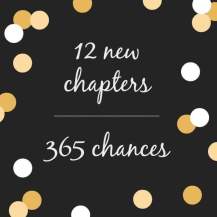

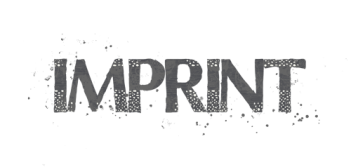

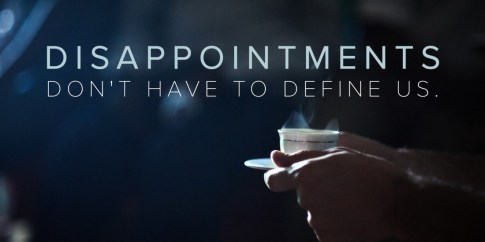


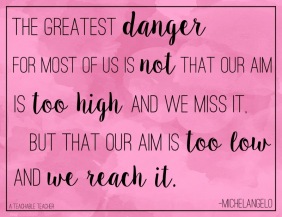



 For the last few weeks, I’ve been thinking a great deal about the upcoming PARCC. I’m speaking of the Next Generation Assessment known as the Partnership for Assessment of Readiness for College and Careers. If you thought the Ohio Achievement Assessment was bad, then wait until you see THIS! I suggest, if you haven’t yet taken a look at this new online assessment, you should…and soon!
For the last few weeks, I’ve been thinking a great deal about the upcoming PARCC. I’m speaking of the Next Generation Assessment known as the Partnership for Assessment of Readiness for College and Careers. If you thought the Ohio Achievement Assessment was bad, then wait until you see THIS! I suggest, if you haven’t yet taken a look at this new online assessment, you should…and soon!


